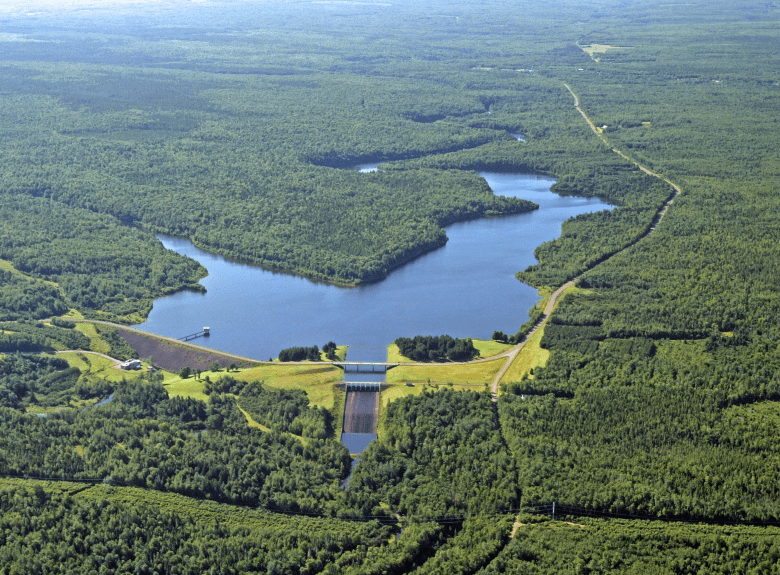Water Conservation
The City of Moncton provides quality drinking water for the tri-community with consumption in Moncton being monitored by water meters. You and your family can save a lot of water by following the three golden rules of wise water use: reduce, repair, and retrofit.
506-853-3333
info [at] moncton.ca (info[at]moncton[dot]ca)
Water Consumption in Moncton
Each day, approximately 29,000 cubic metres of water are used by residents in the City of Moncton. On certain hot days, the average can reach 35,000 cubic metres per day (equal to eight Olympic-sized swimming pools!).
The City’s water source comes from Turtle Creek, a surface water supply located 10 kilometres southwest of Moncton. The watershed is 160-square kilometres in area and the water from the reservoir gets pumped to the water treatment facility, is treated, and is delivered to approximately 125, 000 people in the tri-community.
Water consumption by the numbers
Our everyday actions can be improved to be more water-wise. Here are some numbers to encourage you to conserve water to help the environment and save you money:
- Watering your lawn for 45 minutes equals 3.4 cubic metres of water per hour. If every resident in the City were to water their lawn, it would fill the amount of 46 Olympic-sized swimming pools!
- Have you ever checked on your toilet flapper? This alone can cost you up to $60 per day in water consumption. When there is a toilet leak caused by a faulty flapper, you waste as much water as 35 homes consume in one day alone!
- If you take a 10-minute shower per day as opposed to a bath, you are using 30,000 litres of water per year as opposed to 139, 000. This alone can mean a cost savings of $280 per year on your water bill!
- The City monitors water consumption using metres. In municipalities that meter their water, consumption is approximately 30% less than un-metered municipalities.

How is the City promoting water conservation?
We have taken the following measures to support water conservation in our municipality:
- we employ a new technology called automated meter reading, which allows us to read meter results remotely. Paperless or electronic readings not only save paper, and therefore trees, but also mean that vehicles no longer need to travel to monitor the meters, reducing our carbon footprint.
- we conduct an outreach program in primary schools, educating children on water-related issues and teaching them ways to conserve water.
- each month, the City contacts residents that had a significant increase in water consumption as part of it’s leak detection program.
- in an effort to promote the conservation and wise use of water, the City of Moncton has a water use by-law, By-Law P-102, which includes information on when residents can water their lawns.
Water Conservation Tips
- Do not leave water hoses running unnecessarily.
- Never leave the tap running when washing vegetables or dishes, shaving or brushing teeth.
- Repair leaks immediately, as a small drip quickly amounts to litres of water. Your water meter can help detect a leak.
- Use water-efficient fixtures in the home, as showers/baths account for about 30 per cent of indoor water use and toilets account for about 35 per cent.
- Wash only full loads in the dishwasher and clothes washing machine.
- Take a quick shower rather than a bath.
- Keep water in the fridge instead of running tap water and waiting for it to get cold.
- Dispose of kitchen and dry waste in the garbage instead of flushing down the toilet or garburator.
- Use a bucket and sponge instead of running water for car washing.
- Use a barrel to collect rainwater from your downspouts. Collected rainwater can be used for garden and lawn watering.

Track your water consumption online to conserve water
The City of Moncton has an online portal that allows you to: pay your water bill online, track your water consumption in real-time, and sign up for leak alerts. Creating an online account, can help you follow the golden rules of water conservation: reduce, repair, and retrofit.